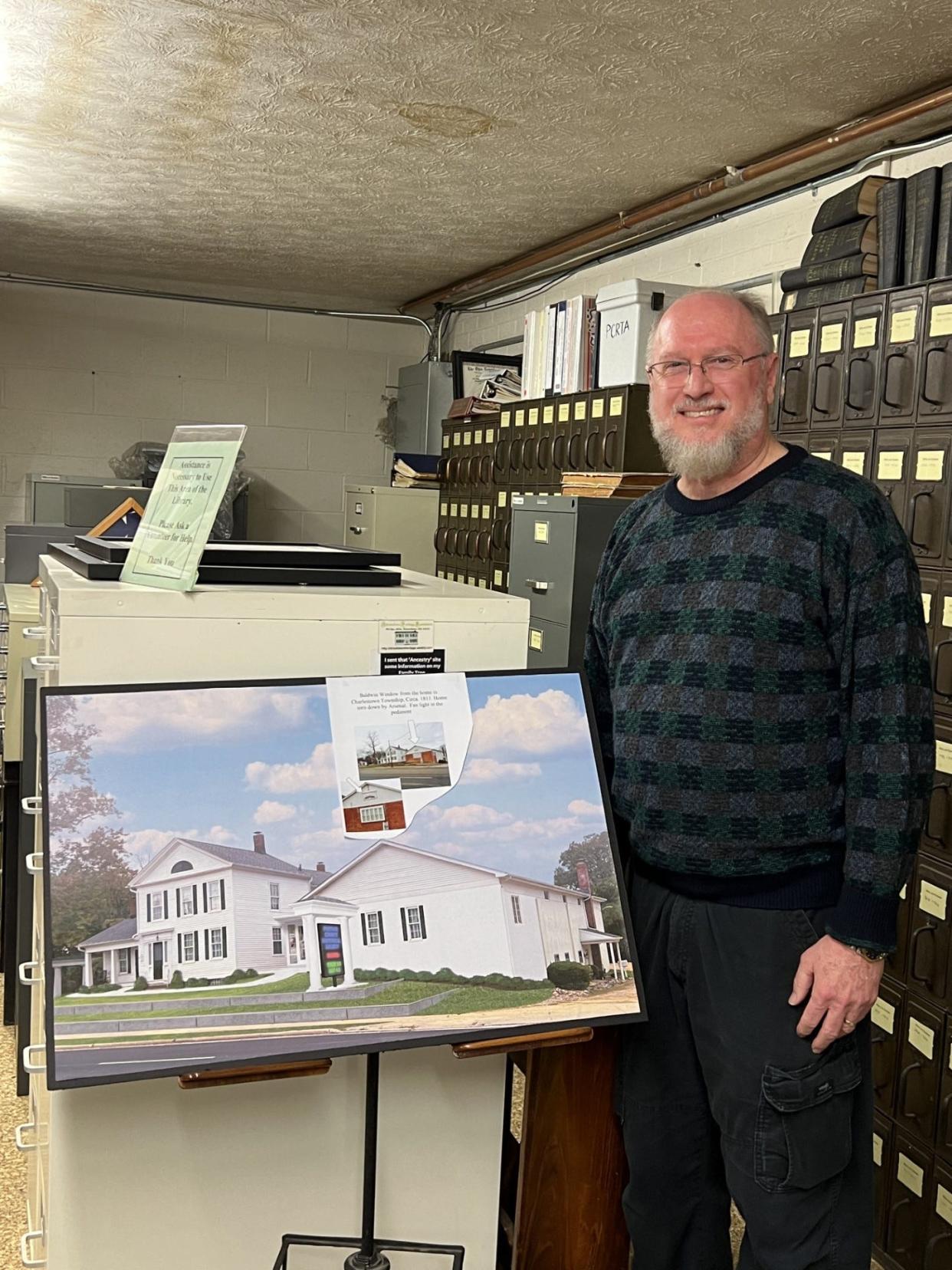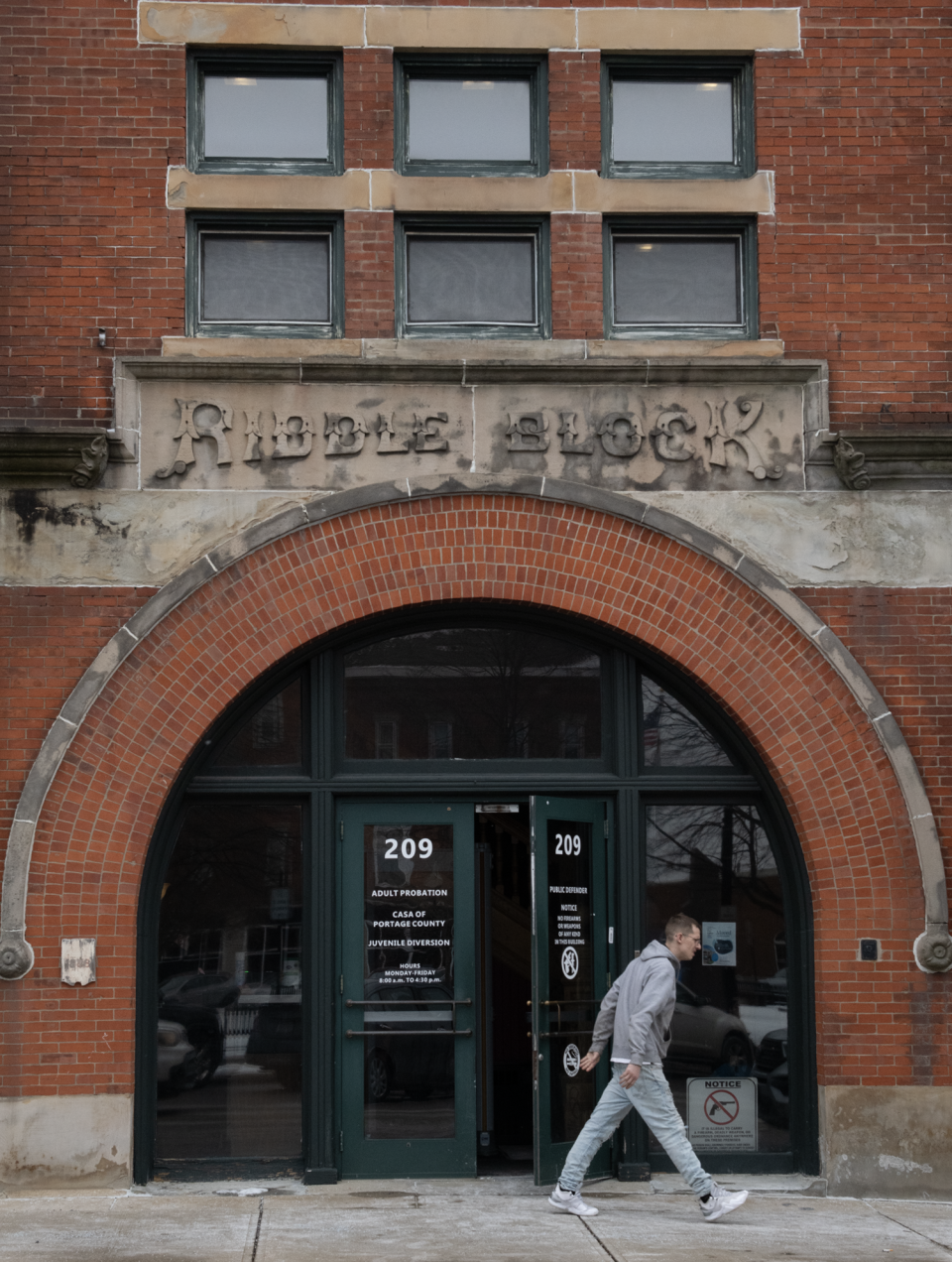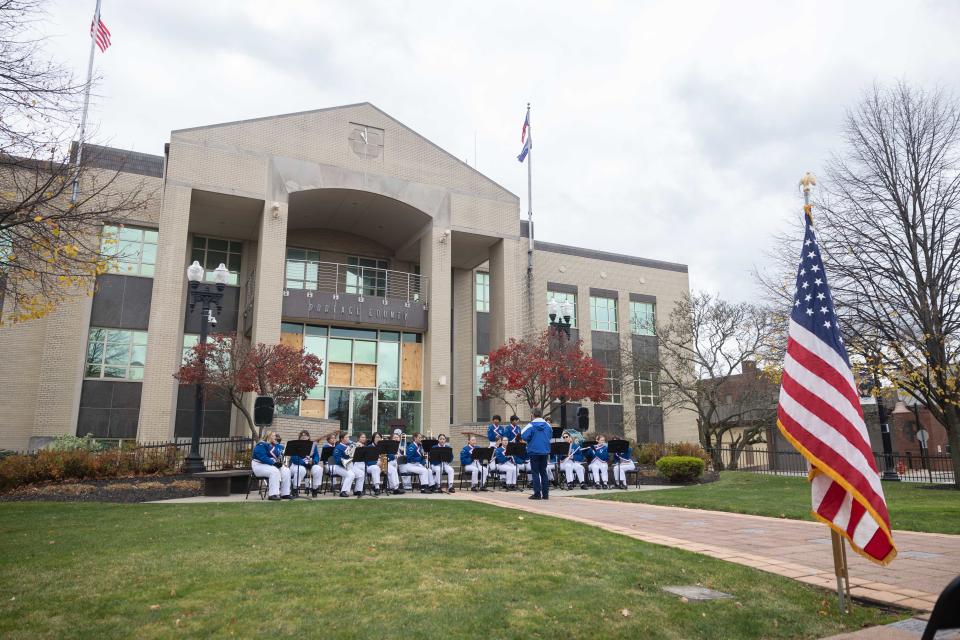From Quaker Oats to public hangings: Historian details Ravenna's first century

A local historian took residents back into Ravenna's history, through the ups and downs of the city's first 100 years.
Wayne Enders discussed the founding of Quaker Oats, the loss of 10 townships to form Summit County and three public hangings.
History buffs packed into Portage County Historical Society's library to hear Enders' presentation called "Ravenna's Milestone Events." Ravenna's first century, he said, included such milestones as the establishment of Portage County, and Ravenna as the county seat, the construction of the original Portage County Courthouse, which was replaced in the 1950s, and the loss of lives to the War of 1812 and the Civil War.
Enders, who is president emeritus of the historical society, said during the Jan. 27 event that Ravenna was founded 225 years ago, in 1799. The historical society is in the planning stages of a celebration of the city's anniversary.
Humble beginnings
Portage County was a hardwood forest when settlers first came to the area. People traveling through faced swamps and rough terrain as they traveled, Enders said.
Before Portage County was established, Ravenna was part of what is now Franklin Township, in what was Trumbull County.
In 1808, Ravenna founder Benjamin Tappan and Aaron Olmsted competed for permission to establish a county seat in their area, and Tappan was the victor because Olmsted died. That's when the county seat was established in Ravenna.
Ravenna saw three public hangings between 1816 and 1866, before the practice was outlawed statewide. The 1816 hanging, Enders said, drew a crowd of 1,800 people. That condemned man was so large, officials decided to bury him at the hanging site. Body snatchers then stole the body, and when it was recovered, he was buried elsewhere.
Although slavery was outlawed in Ohio, some early inhabitants − including John Garrett, founder of Garrettsville − were permitted to bring their slaves with them. That is one way Ravenna came to have a population of free Black residents. One of those residents, Ravenna native Frederick Loudin, led the Fisk Jubilee Singers, which became world famous.
Early industry
Although some industries, such as Oak Rubber and the ammunition plant now called Camp James A. Garfield, didn't come about until the 19th century, a number of businesses got started in Ravenna in the 1800s.
Ravenna was the birthplace of the Quaker Oats milling company, which later moved to Akron. Ravenna also was known for the production of glass, cheese and maple syrup.

In 1831, Clark Carriage Company, owned by N.D. Clark, was established. In 1861, Clark sold the company to his relatives, Charles Merts and Henry W. Riddle, who renamed the company Merts and Riddle Coach and Hearse Company. When the company closed in 1926, many buildings used in the carriage building industry transitioned into real estate, and those buildings became the historic landmarks known as the Riddle Blocks.
Old courthouse
The old Portage County Courthouse was built in 1830. In the 1880s, Zenas Kent built a facade on the front of the courthouse, which housed the historic bell tower.

A new courthouse was built in 1860, and Enders said he's heard many people say that the old courthouse never should have been torn down. He said many don't realize the iconic building they remember was just a facade, and the building that dated to 1830 was in such bad shape that the floor of the jury room caved in because of damage from termites and carpenter ants. Portage County residents, he said, immediately approved funding to build the new courthouse.

"This is all of Portage County's fault," Enders said of the current building.
The bricks from the old courthouse, he said, were used to build the Michael Kirwin Dam in Wayland.
Summit County formed
Enders shared early maps, which listed Trumbull, Portage, Medina and Stark counties − but no Summit County. At one time, he said, Portage County loomed large in statewide politics, and it was thought that Portage County was getting "too big for its britches."
In 1825, Simon Perkins purchased the land that eventually became Akron, and many people moved there. In 1840, Summit County was formed. Ten townships that were once part of Portage County − as well as four Medina County townships and two from Stark County − broke off to join the new county.
"Portage County, which was once the heart of it all, became very secondary," he said.
Historical Society renovations
The Portage County Historical Society, which previously received a $650,000 grant for improvements on its campus, is now focusing on the second phase of the renovations.
Enders said his next presentation, set to take place during February's Black History Month, will address the origins of segregation.
Reporter Diane Smith can be reached at 330-298-1139 or dsmith@recordpub.com.
This article originally appeared on Record-Courier: Historian details Ravenna's first century, including public hangings

